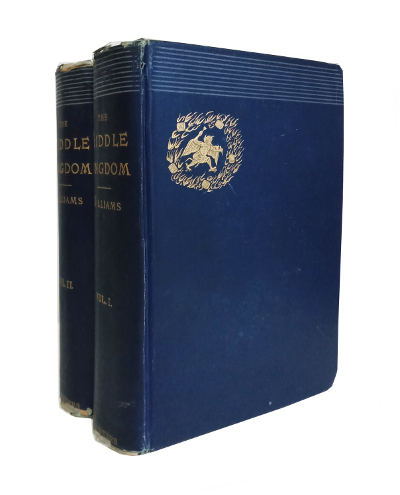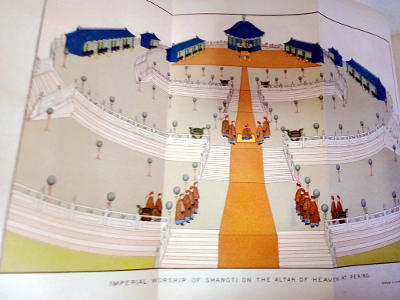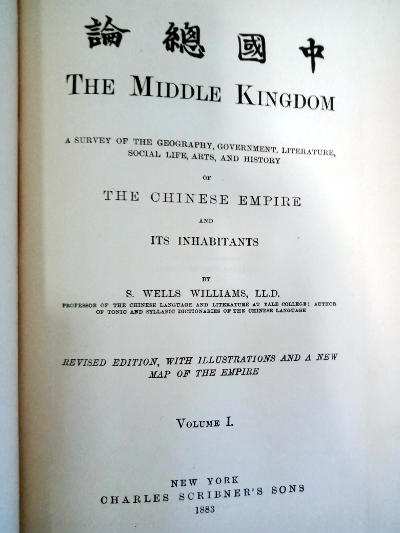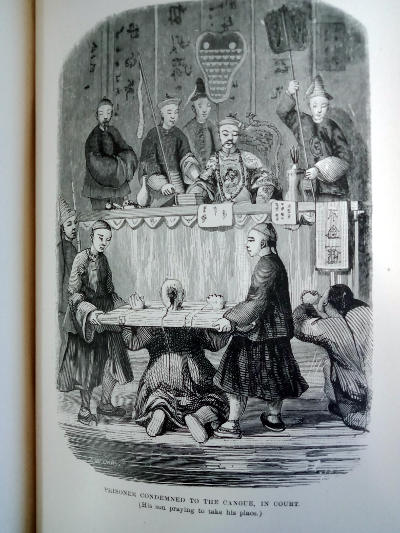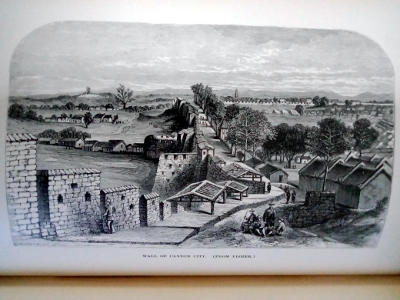‘A Survey of the Geography, Government, Education, Social Life, Arts, Religion, &c. of The Chinese Empire and Its Inhabitants.’ A definitive and influential work on China from the mid-19th century that shaped much of the perception of the West about China. Extremely detailed work.
Contents:
Preface
Note respecting the system of pronunciation adopted in this work
Chapter I. General divisions and features of the Empire
Chapter II. Geographical description of the eastern provinces
Chapter III. Geographical description of the western provinces
Chapter IV. Geographical description of Manchuria, Mongolia, and Tibet
Chapter V. Population and statistics
Chapter VI. Natural history of China
Chapter VII. Laws of China, and plan of its government
Chapter VIII. Administration of the laws
Chapter IX. Education and literary examinations
Chapter X. Structure of the Chinese language
Chapter XI. Classical literature of the Chinese
Chapter XII. Polite literature of the Chinese
Chapter XIII. Architecture, dress, and diet of the Chinese
Chapter XIV. Social life among the Chinese
Chapter XV. Industrial arts of the Chinese
Chapter XVI. Science among the Chinese
Chapter XVII. History and chronology of China
Chapter XVIII. Religion of the Chinese
Chapter XIX. Christian missions among the Chinese
Chapter XX. Commerce of the Chinese
Chapter XXI. Foreign intercourse with China
Chapter XXII. Origin of the first war with England
Chapter XXIII. Progress and results of the first war between England and China
Chapter XXIV. The Tai-Ping rebellion
Chapter XXV. The second war between Great Britain and China
Chapter XXVI. Narrative of recent events in China
About the Author (from wikipedia):
Samuel Wells Williams (衛三畏; 22 September 1812 – February 16, 1884) was a linguist, official, missionary and Sinologist from the United States in the early 19th century.
Williams was born in Utica, New York and studied at Rensselaer Polytechnic Institute in Troy, New York. On graduation he was elected as a Professor of the Institute.
On the June 15, 1833, and still in his twenties, he sailed for China to take charge of the printing press of the American Board of Commissioners for Foreign Missions at Guangdong, China. In 1837 he sailed on the Morrison to Japan. Officially this trip was to return some stranded Japanese sailors, but it was also an unsuccessful attempt to open Japan to American trade.
On November 20, 1845 Williams married Sarah Walworth. From 1848 to 1851 Williams was the editor of The Chinese Repository, a leading Western journal published in China. In 1853 he was attached to Commodore Matthew Calbraith Perry’s expedition to Japan as an official interpreter.
In 1855, Williams was appointed Secretary of the United States Legation to China. During his stay in China, he wrote A Tonic Dictionary Of The Chinese Language In The Canton Dialect (英華分韻撮要) in 1856. After years of opposition from the Chinese government, Williams was instrumental in the negotiation of the Treaty of Tientsin, which provided for the toleration of both Chinese and foreign Christians.

